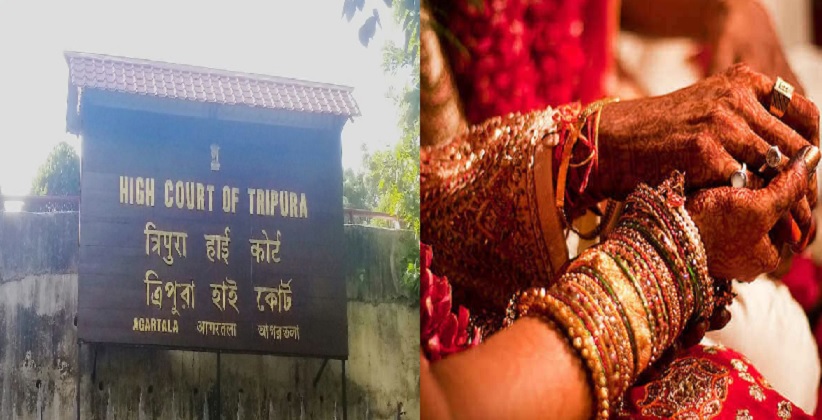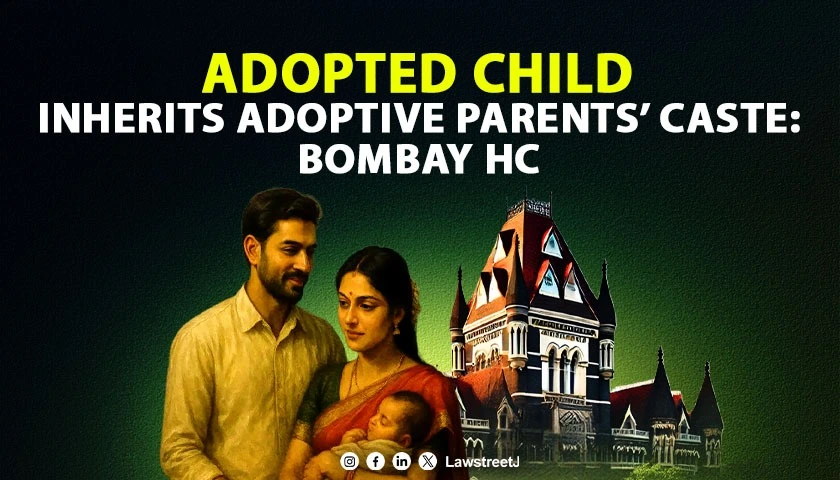A Bench of S. Talapatra and S.G. Chattopadhyay held that Section 2(2) of the Hindu Marriage Act has the unpleasant effect of the statutory exclusion that the person belonging to any Scheduled Tribe within the meaning of clause (25) of Article 366 of the Constitution will in the matter of marriage, continue to be governed by their customary laws, which are akin to the personal law and not any provision of the Hindu Marriage Act.
The present appeal arose from the decision delivered in Tapash Debbarama v. Rupa Debbarama, dated 23-05-2018, Suit No. 12 of 2016.
In view of the said decision, the decree of divorce on the ground of cruelty and desertion had been issued.
According to the case, the wife launched criminal action against the husband under Section 494 and 498A of the Penal Code, 1860, and the respondent was arrested on the basis of an allegation of bigamy for marrying a Nepali Girl while his marriage with the appellant was subsisting.
Further from the said decision, it has been noted that the parties lived separately for 2 years as their relation turned animus and hostile. In view of the above-said decision, Additional District Judge granted a decree of divorce to the respondent on the ground of desertion.
Respondent was serving under Indian Armed Forces and was posted at Punjab. The wife during that time started creating a tantrum on insignificant issues. The wife used to abuse her mother-in-law by obnoxious slang. At one point in time wife had refused to accompany the husband to his place of posting.
The wife started living in her native village as she did not want to live at the husband's place of posting and in a few months, she gave birth to a male child.
Due to the criminal action by the wife, the respondent was suffering from serious depression and social ignominy.
Further, the wife lived continuously for 4 years being alienated from the matrimonial relation. She had frustrated all efforts of reconciliation as taken by the husbands.. Having no other alternative, the wife filed the petition seeking divorce on the dissolution of their marriage.
It may also be noted that the respondent declared himself as Hindu in the affidavit.
On the grounds of cruelty and desertion, a decree of divorce was granted, coupled with the order of maintenance allowance for the couple and her son.
P.K. Ghosh, Counsel appearing for the appellant challenged the finding on maintainability of the suit and the finding on cruelty and desertion. He submitted that the suit is barred in view of Section 2(2) of the Hindu Marriage Act, 1955.
Further, he added to his submissions that, both the wife and the husband are admittedly the member of the scheduled tribe the meaning of Article 366, 25 of the Constitution of India and as such the suit under Hindu Marriage Act, 1955 cannot be maintained for purpose of dissolution of marriage by a decree of divorce on the postulates, provided by Sections 13(1)(a) and 13(1)(b) of the Hindu Marriage Act.
High Court sought assistance from the following eminent lawyers of the Court: -
1. A.K. Bhowmik (Advocate General of Tripura)
2. S. Lodh(Counsel)
3. M. Debbarma(Additional GA)
4. A Pal(Counsel)
Two questions are relevant to the issue of the maintainability of the suit in the perspective of the present case:
a. Whether the marriage was solemnized between the members of Scheduled Tribes notified under Article 342 of the Constitution of India and within the meaning of clause 25 of Article 366 and as their marriage was solemnized as per Hindu rites and customs, can their marriage be dissolved under the provisions of Hindu Marriage Act, 1955?
b. Whether the adoption of Hindu customs and rites at the time of marriage by the intending persons to get married belonging to the Scheduled Tribe to get married can be treated as the conversion?
The court notes that Section 2(2) of the Act has the imminent effect of the statutory exclusion that the person belonging to such notified tribe will in the matter of marriage, continue to be governed by their customary laws, which are akin to the personal law and not any provision of the said Act unless the Centre directs so.









Wedding Phere Sep 18, 2020
It is a great blog post about hindu marriage .I am always read your blog helpful and informative tips. I like it thanks for sharing this information with us